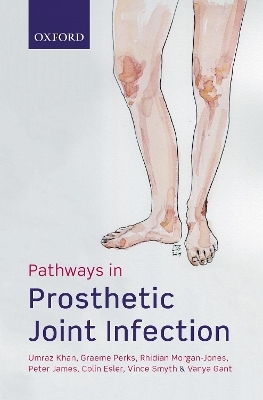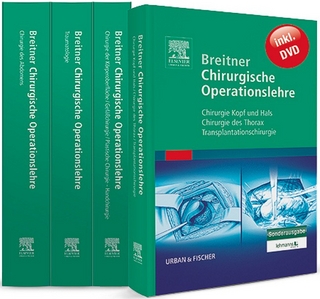
Pathways in Prosthetic Joint Infection
Oxford University Press (Verlag)
978-0-19-879188-1 (ISBN)
- Covers prevention and tips for avoiding prosthetic joint infection, to reduce the requirement for specialist treatment.
- Written by internationally acclaimed experts in the field, distilling the experience they have gained through clinical practice into concise guidance.
- Draws on the current literature and provides a succinct overview of managing PJI.
- Features real-life clinical cases with photographs to aid the specialist approach commonly-experienced situations.
- Includes consideration of how to shape a PJI service in the future for groups of specialists, empowering those who wish to establish a regional service model.
- Endorsed by the Royal College of Surgeons, BAPRAS, The Vascular Society, and BASK.
The incidence of developing infection in prosthetic joints remains low after primary arthroplasty, but owing to the growing success of joint replacement surgery as a procedure to alleviate pain and improve mobility, infection numbers are increasing. The impact on the patient is immense, and surgical options are challenging. Prevention and reducing the incidence is the key to addressing this problem.
Pathways in Prosthetic Joint Infection covers the most common incidences where the risk of PJI is elevated (such as following revision arthroplasty), and indicates suitable approaches to aid the improvement of outcomes. Featuring clearly-illustrated clinical cases on the typical presentation of established and latent infections, the microbiology profiles, assessment, and definitive management are all highlighted.
Taking a team-based approach that includes the ortho-plastic surgery team, physiotherapists, and microbiologists, this new book provides a concise summary of the current literature and an essential overview of the management options for those with PJI. Endorsed by the Royal College of Surgeons, BAPRAS, The Vascular Society, and BASK, Pathways in Prosthetic Joint Infection is an indispensable title for all those working with patients who may face PJI.
Umraz Khan, Chairman of the Working Group and BAPRAS Lead, North Bristol NHS Trust and the British Association of Plastic Reconstructive and Aesthetic Surgeons, Graeme Perks, Head of the Department of Plastic, Reconstructive and Burns Surgery, Nottingham University Hospitals NHS Trust, Nottingham, UK
Rhidian Morgan-Jones, Consultant Orthopaedic Surgeon & Honorary Lecturer, University Hospital of Wales, Cardiff, UK
Peter James, Consultant Hip and Knee Surgeon, Nottingham University Hospital, Nottingham, UK
Colin Esler, Consultant & Honorary Senior Lecturer in Trauma and Orthopaedic Surgery, Leicester General Hospital, Leicester, UK
Vince Smyth, Consultant Vascular and Endovascular Surgeon, Manchester Royal Infirmary, Manchester, UK
Vanya Gant, Clinical Director for Infection and Consultant Microbiologist, University College London, London, UK
1: Introduction
2: Assessing risk of PJI
3: Preoperative assessment
4: Thromboprophylaxis and haematomas
5: Considering safe patient pathways
6: Pathways for established PJI
7: Specific microbiology issues relating to PJI
8: Revision arthroplasty networks
9: Typical cases
| Erscheinungsdatum | 30.01.2019 |
|---|---|
| Verlagsort | Oxford |
| Sprache | englisch |
| Maße | 129 x 196 mm |
| Gewicht | 116 g |
| Einbandart | kartoniert |
| Themenwelt | Medizinische Fachgebiete ► Chirurgie ► Ästhetische und Plastische Chirurgie |
| Medizinische Fachgebiete ► Chirurgie ► Unfallchirurgie / Orthopädie | |
| Medizin / Pharmazie ► Physiotherapie / Ergotherapie ► Orthopädie | |
| Technik ► Medizintechnik | |
| Schlagworte | Gelenkersatz |
| ISBN-10 | 0-19-879188-7 / 0198791887 |
| ISBN-13 | 978-0-19-879188-1 / 9780198791881 |
| Zustand | Neuware |
| Haben Sie eine Frage zum Produkt? |
aus dem Bereich


